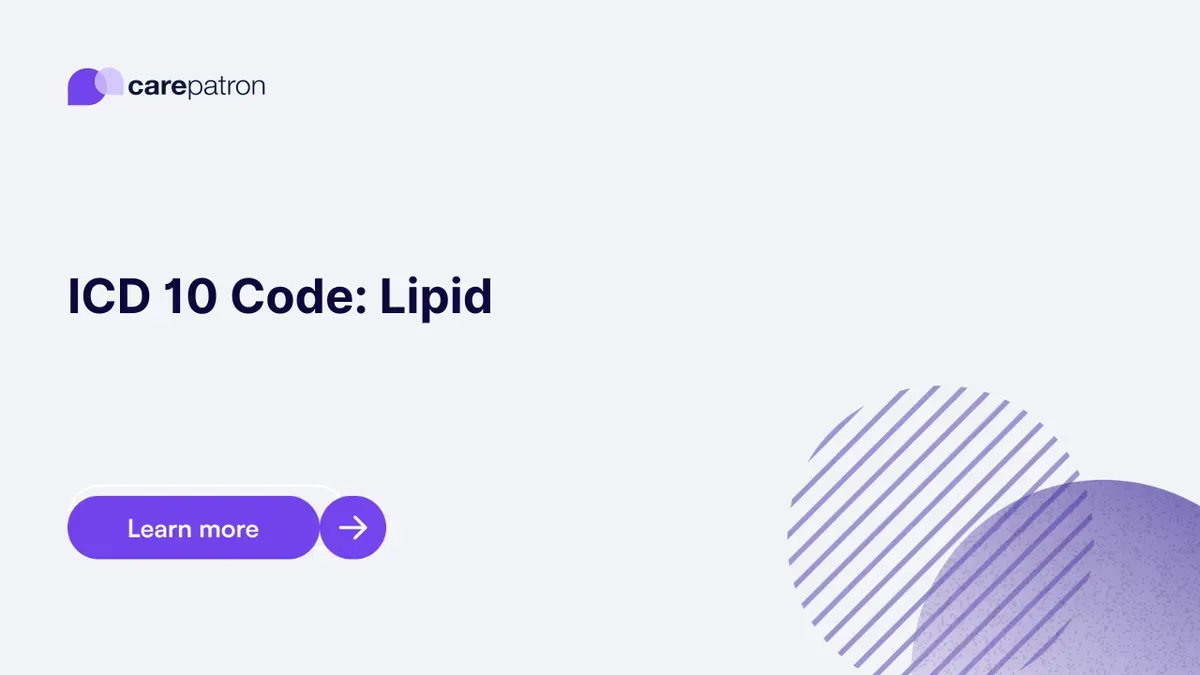
Lipid ICD-10-CM Codes
A comprehensive guide to ICD-10 Codes for lipid disorders. Learn about commonly used codes, their clinical descriptions, billable status, synonyms, and FAQs.
Use Code
EHR and practice management software
Get started for free
*No credit card required
Free
$0/usd
Unlimited clients
Telehealth
1GB of storage
Client portal text
Automated billing and online payments
